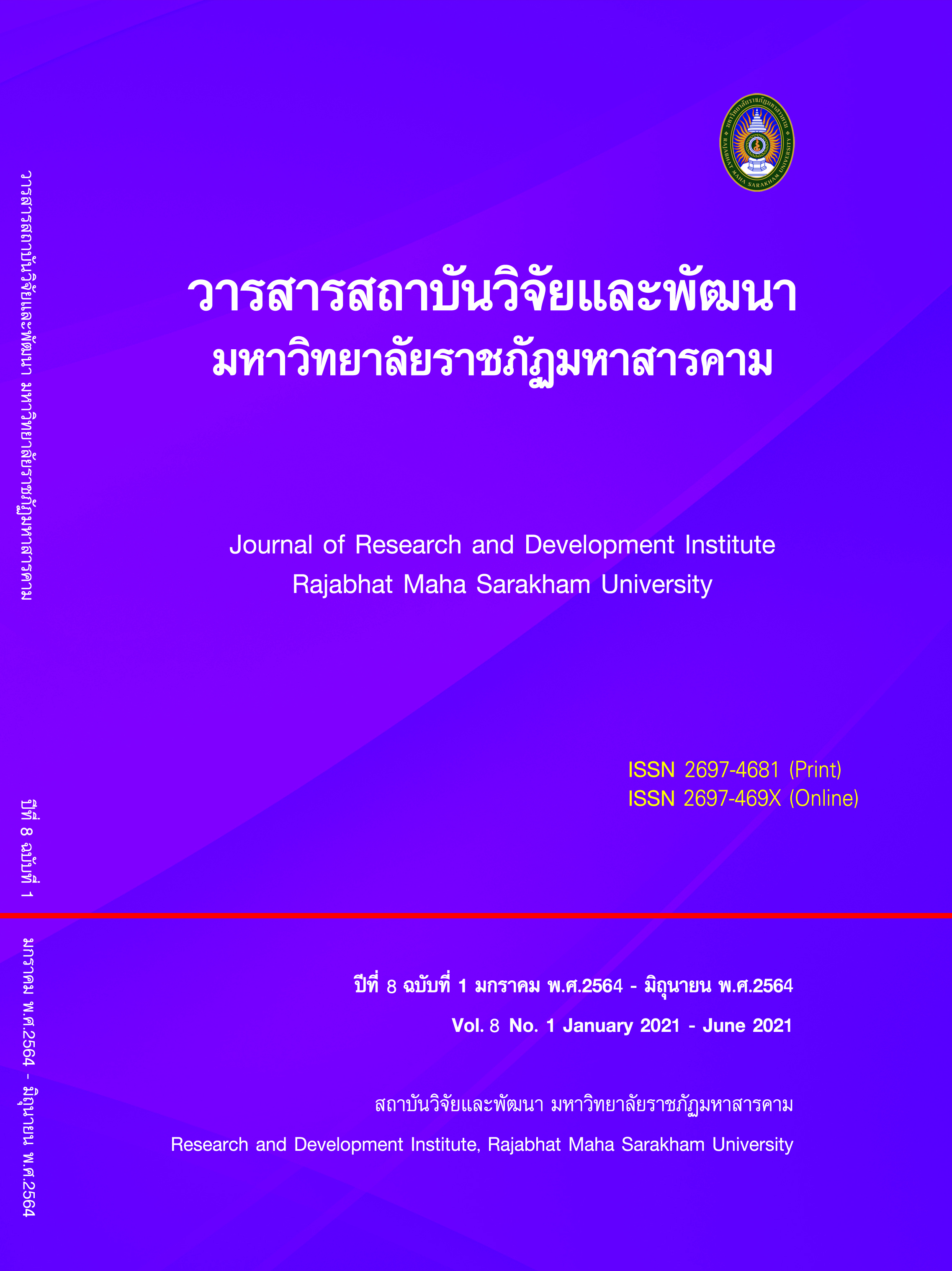Islamic and Buddhist Leaders’ influences of Thinking Associated with the Relationship between Muslims and Buddhists in the Three Southern Border Provinces of Thailand
Keywords:
Thinking, Religion, RelationshipAbstract
The objectives of this research was to examine Islamic and Buddhist leaders’ influences of thinking associated with the relationship between Muslims and Buddhists in the three Southern border provinces of Thailand. Data for this qualitative research were collected from related literature and from the field through observation and in-depth interviews with the target groups who were Buddhist monks 20 persons, Islamic leaders 17 persons. Ordinary Buddhist and Muslims, and local academic totaling 68 persons. The data were validated before being analyzed and concluded using descriptive analysis. The study found that Islamic and Buddhist leaders’influences of thinking associated with the relationship between Muslims and Buddhists in the three Southern border provinces of Thailand were as follows. 1) Compassion for others without religious discrimination, and giving objects, physical help and support, and encouragement without religious discrimination to express your wish for people of all religions to live without suffering. 2) Social equality based on different religions by supporting Buddhists and Muslims to access their religions equally, and compare teachings of the two religions to show similarities to reflect the same direction of life goals. 3) Unity to empower peace and strength for benefits of Buddhists and Muslims to do activities together. 4) Development of knowledge and awareness to reduce negative attitudes towards each other; correct religious knowledge must be reinforced; awareness of changes; and realization of being fellow Thai citizens. 5) The unrest situation did not stem from religious conflict, thus, religious leaders must not think of using religion as a tool for separation but for thinking that we can be different but not divided.
References
Abdul Rahman Diwani. (2015). Building Peace in the Islamic Way. [Online]. https://deepsouthwatch.org/dsj/th/7842. [19 August 2019]
Decharin, P. (2011). Leaders according to Buddhist principles
[Online].http://www.onab.go.th/คลังข้อมูล/ผู้นำตามหลักพระพุทธศาสนา/ [19 August 2019]
Eoseewong, N. (2015). Religion and the Thai cultural constitution. [Online]. https://prachatai.com/journal/2015/02/58086. [12 July 2019]
Janthra, J. (2012). Soldiers and drug problems in the southern border areas. [Online] https://www.sac.or.th/databases/sac-research/research. [18 August 2019]
John C. Maxwell. (2011). Ability to communicate: see victory. Wandee Apirakthanakorn, translator. Bangkok: Nate Books Company.
Ninsri, S. (2014). “Factors and Formation of Violence in the Three Southern Border Provinces: An Excerpt from the Document (End)”. Rusamilae Journal. 35 (4): 60-72.
PhraBrahmakunaphorn. (2013). towards the study of Buddhism. [Online] http://www.onab.go.th/คลังข้อมูล/สู่การศึกษาแนวพุทธ . [21 August 2019]
PhrakhruKositsutaporn. (2016). Phra Dhammaduta at the end of the ax handle and the creation of peace in 3 provinces. [Online]. http://www.southdeepoutlook.com/ShowAllDetails/. [20 August 2019]
Piyasiripon, N. (2018). “Multicultural Communities in the midst of Nationalism Discourse in Deep South of Thailand”. The National Defence College of Thailand Journal, 60 (2): 58-72.
Srihanu, C. (2017). Buddhism and Peace. [Online].
http://elearning.mcu.ac.th/course/view.php?id=259. [21 August 2019]
Tuansiri, E. (2019). On the fragile relationship between Buddhist and Muslim groups in Thai society. Pattani: Patani Forum.
Unno, A. (2016). Nabee doesn't eat betel nut. Pattani: Patani Forum.
Yusuf al-Qaradawi. (2004). Halal and Haram in Islam. Banjong Binkasan, translator.
Bangkok: Islamic Book Center, Bangkok.
Downloads
Published
How to Cite
Issue
Section
License
Copyright (c) 2021 Journal of Research and Development Institute Rajabhat Maha Sarakham University

This work is licensed under a Creative Commons Attribution-NonCommercial-NoDerivatives 4.0 International License.
Articles that are published are copyrighted by the authors of the articles







